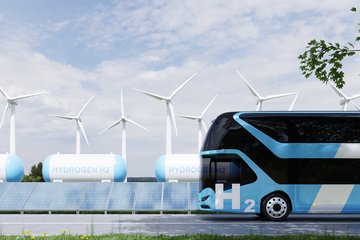All genres
121.
Talk
Aqueous corrosion from the perspective of semiconductor defect chemistry: New Tools and Insights. CMRI Workshop, Sendai, Japan (2015)
122.
Talk
From semiconductor defect chemistry to electrochemisty: New tools and insights. Workshop “Enabling methods for materials innovation: From quantum to mesoscale”, Gainesville, FL, USA (2015)
123.
Talk
From semiconductor defect chemistry to electrochemistry: Defect stability phase diagrams. Workshop , Lake Arrowhead, CA, USA (2015)
124.
Talk
Aqueious corrosion from the perspective of semiconductor defect chemistry: New tools and insights. CMRI Workshop on Computational Study of Corrosion, IMR, Tohoku University, Sendai, Japan (2015)
125.
Talk
From Semiconductor Defect Chemistry to Electrochemistry: New Tools and Insights. EMMI Workshop, Gainesville, FL, USA (2015)
126.
Talk
Identification of bulk oxide defects in an electrochemical environment. Faraday Discussions Corrosion Chemistry, London, UK (2015)
127.
Talk
Formation energy of ions in water: An ab-initio molecular dynamics study. DPG 2015, Berlin, Germany (2015)
128.
Talk
Formation Energy of ions in water: An ab initio molecular dynamics study. 2nd German-Austrian Workshop on "Computational Materials Science on Complex Energy Landscapes", Kirchdorf, Austria (2015)
129.
Talk
Stability and defect chemistry of zinc oxide in contact with an electrochemical environment: An ab initio approach. Helmholtz-Zentrum Berlin , Berlin, Germany (2014)
130.
Talk
Connecting defect chemistry in semiconductors and electrochemistry. ICMR Workshop on Ab-initio description of charged systems and solid/liquid interfaces for semiconductors and electrochemistry, University of California, Santa Barbara, CA, USA (2014)
131.
Talk
Ab-initio study on liquid metal embrittlement in the Fe/Zn System. Workshop, Lake Arrowhead, CA, USA (2014)
132.
Talk
Stability and defect chemistry of oxides in contact with an electrochemical environment: An ab initio approach. Talk at University of California, Santa Barbara, CA, USA (2014)
133.
Talk
An ab-initio study of muscovite mica. DPG Frühjahrstagung, Dresden, Germany (2014)
134.
Talk
Modelling Mica from first-principles. 1st Dutch/German Workshop on Computational Materials Design, Balk, The Netherlands (2013)
135.
Talk
Adsorption of H, S, and O on the Iron (100) surface. 1st Dutch/German Workshop on Computational Materials Design, Balk, The Netherlands (2013)
136.
Talk
Interactions of water and its derivatives with low index Fe3Al surfaces. 1st Dutch/German Workshop on Computational Materials Design, Balk, The Netherlands (2013)
137.
Talk
Ab initio modelling of platinum oxides. 1st Dutch/German Workshop on Computational Materials Design, Balk, The Netherlands (2013)
138.
Talk
The Nernst equation in the context of semiconductor defect chemistry. 1st Dutch/German Workshop on Computational Materials Design, Balk, The Netherlands (2013)
139.
Talk
Hydrogen adsorption on polar Zn(0001)–Zn surfaces - Extending equilibrium surface phase diagrams to kinetically stabilised structures. International Workshop on Materials Design Processes: Thermodynamics, Kinetics and Microstructure controll, Madrid, Spain (2013)
140.
Talk
Interactions of oxidizing species with the Mg(0001) surface: The role of electrostatic contributions. DPG Frühjahrstagung, Regensburg, Germany (2013)











